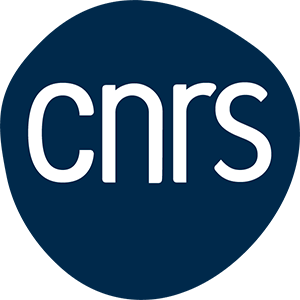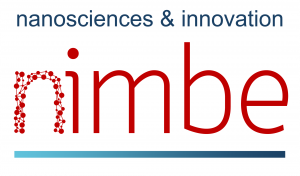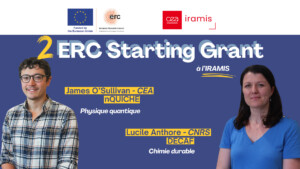The Institut Rayonnement Matière (IRAMIS) is proud to announce that two of its early-career researchers have been awarded prestigious ERC Starting Grants: James O’Sullivan, CEA researcher at SPEC (UMR CEA-CNRS), Quantronics Group, and Lucile Anthore-Dalion CNRS researcher at NIMBE, Laboratory for Molecular Chemistry and Catalysis for Energy. These European grants provide crucial support for developing ambitious, high-impact scientific and technological programs, recognizing both the originality and scientific excellence of their innovative projects in quantum physics and sustainable chemistry; two strategic research areas at the heart of IRAMIS.
James O’Sullivan – nQUICHE: towards an operational quantum memory
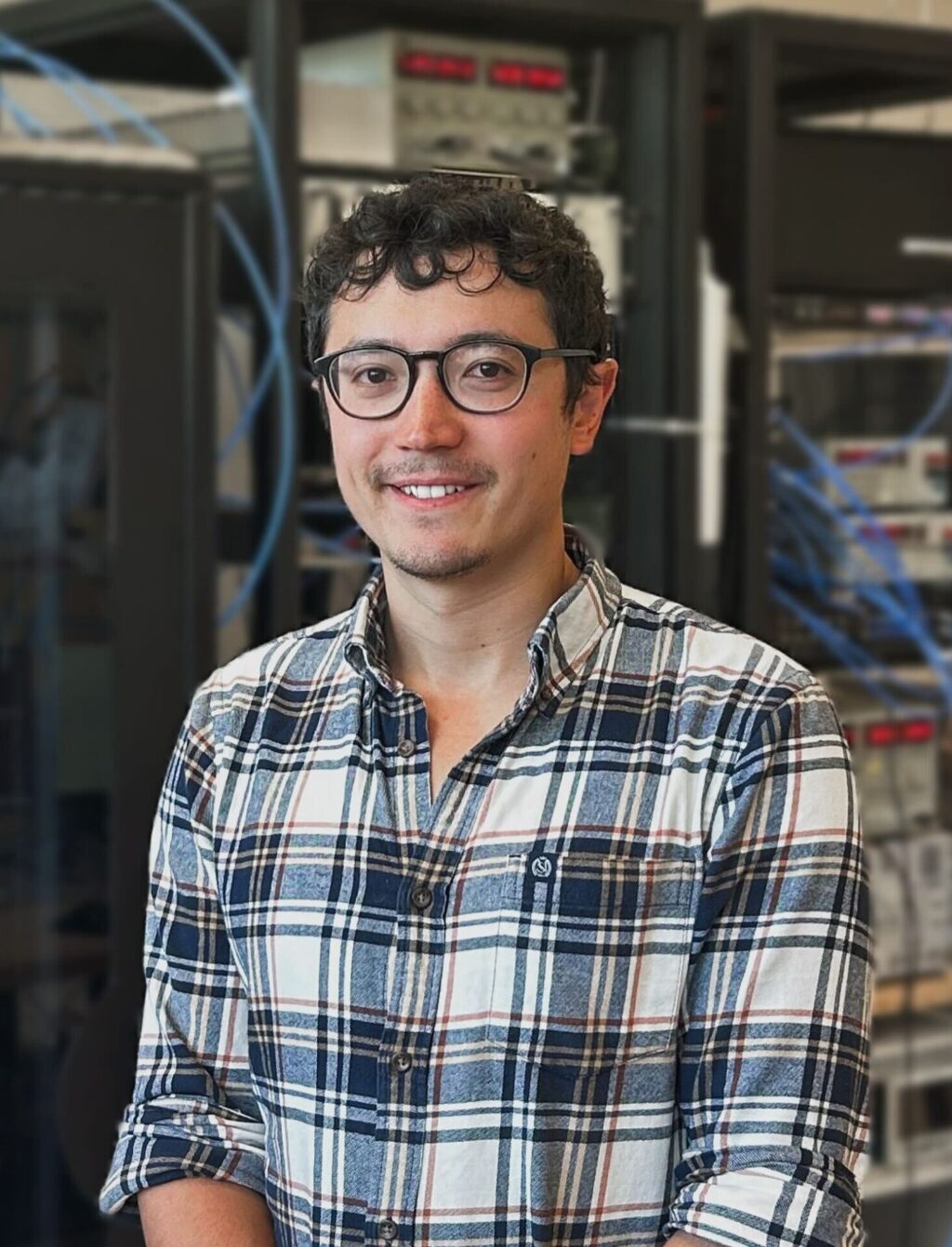
This ERC grant allows me to work towards creating an operational QRAM and push the boundaries of spin manipulation in modular architectures.
James O’Sullivan, SPEC researcher, ERC Starting 2025 laureate.
James O’Sullivan, a CEA researcher at SPEC in the Quantronics group, received an ERC Starting Grant for his project nQUICHE, which aims to realise the building block of a Quantum Random Access Memory (QRAM). This device can store and manipulate quantum information across multiple superposed cells, a key component for scalable quantum computing.
By combining electronic and nuclear spins with superconducting circuits in a hybrid architecture, nQUICHE will explore modular and scalable approaches to quantum information processing. Experiments will probe quantum effects at the single-spin level, opening new possibilities in cryptography, quantum chemistry, and quantum machine learning.
Lucile Anthore-Dalion – DECAF: innovative catalysis for sustainable chemistry
This is a unique opportunity to explore sustainable catalytic methods and expand the range of chemical reactions available to researchers.
Lucile Anthore-Dalion, NIMBE researcher, ERC Starting 2025 laureate.
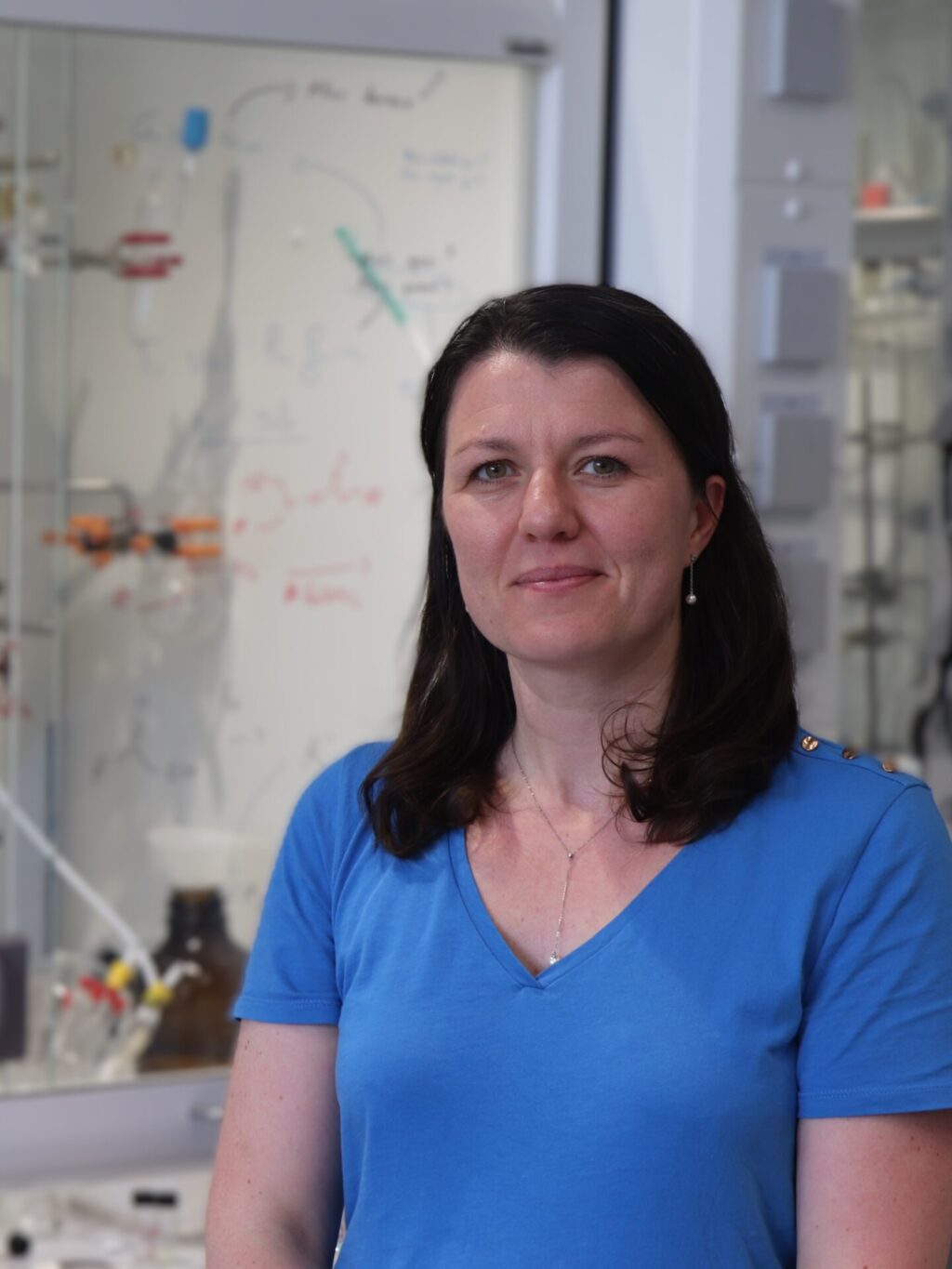
Lucile Anthore-Dalion, a CNRS researcher at NIMBE in the LCMCE group, was awarded an ERC Starting Grant for the DECAF project. The project aims to develop innovative cross-coupling reactions using carboxylic esters as safer and more accessible bifunctional reagents than traditional reactants.
DECAF seeks to overcome kinetic limitations of these reactions and establish new photocatalytic methodologies under visible light to synthesize complex molecules more sustainably. The results could have significant impact in pharmaceuticals, agrochemicals, and materials science.
Research Driven by Collective Excellence
Beyond individual achievements, these grants reflect the collaborative spirit that defines IRAMIS. The institute brings together researchers with complementary expertise, state-of-the-art experimental facilities, and strong connections to academic and industrial partners. This fertile environment fosters ambitious teams and bold scientific ideas at the interface of fundamental research and future applications.
These ERC Starting Grants highlight the talent and ambition of our early-career researchers. They perfectly illustrate IRAMIS’ capacity to support innovative scientific projects that combine fundamental research with technological and applications perspectives.
Catherine Gilles-Pascaud, Director, Institut Rayonnement Matière (IRAMIS)
About the laureates
James O’Sullivan is a CEA researcher at SPEC (UMR CEA-CNRS) in the Quantronics group. He holds a PhD in quantum physics from University College London and completed postdoctoral positions at ETH Zurich and the London Centre for Nanotechnology. Since 2023, he has held a Junior Chair position at CEA for hybrid systems research and co-founded Amplify My Probe Ltd, a company specializing in ultra-low temperature spin detection. His work on spins and quantum spectroscopy is internationally recognized with numerous publications and invited talks.
Lucile Anthore-Dalion is a CNRS researcher at NIMBE (UMR CEA-CNRS) in the Laboratory of Molecular Chemistry and Catalysis for Energy (LCMCE group). She graduated from École Polytechnique and carried out postdoctoral research in Germany and at CEA before joining CNRS in 2019. She specialises in organic chemistry, and her research focuses on the reactivity of C-O, N-O and S-O oxygen bonds as platforms for the development of new tools for the synthesis of organic molecules. Her work was recognised in 2024 with the SCF’s Émergence Marc Julia prize. She is a winner of the L’Oréal-UNESCO fellowship and leads several projects funded by the ANR.

